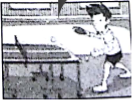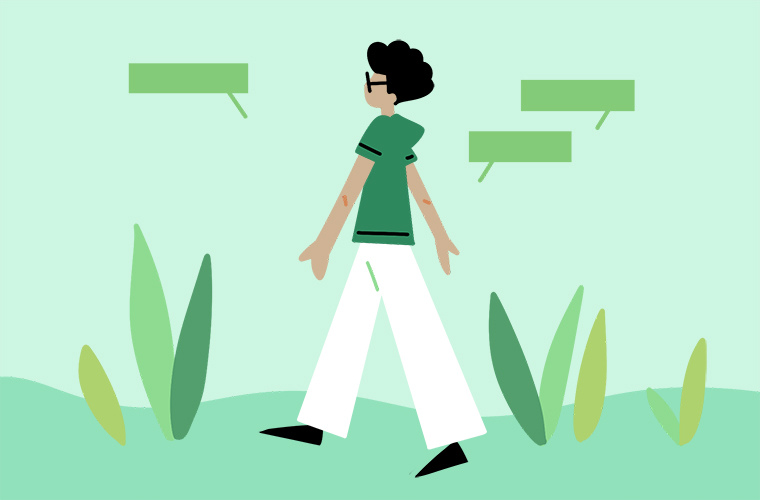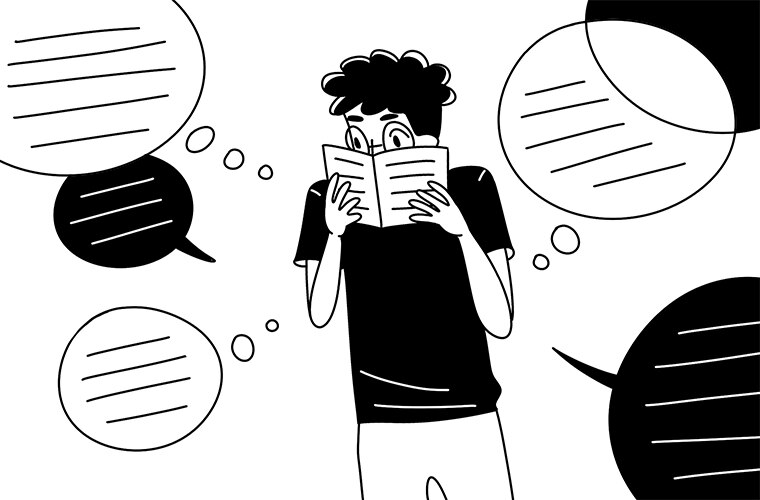2018长春市农安县中考英语模拟试题【精编Word版首发】
由于格式问题,部分试题会存在乱码的现象,请考生点击全屏查看!
第一部分 听力(共40分)
一、情景交际 听下面五个提示名,从每小题A、B、C三个选项中,能回应提示句的最佳
选项。【听每个提示句前,你将有时间阅读各个小题,每小题5秒钟;听完后,各个小题将
给出5秒钟的作答时间。每个提示句读两遍。】每小题1.5分,共7. 5分)
1. A. You’re welcome B. Thanks C. Not at all
2. A. No, thanks B. They’re too long C. Rice and chichen, please.
3. A. See you later. B. Don’t worry. C. Good idea!
4. A. They are watching TV B. They are fine. C. They are doctors.
5. A. Good luck! B. Enjoy yourself C. Congratulations!
二、听对话选图 听下面五段对话,每段对话后有一个问题,从下面所有的A、B、C、D、E、F六个图片选项中,相应问题的最佳选项(其中有1个为干扰选项)。【听完每段对话后,
各个小题将给出5秒钟的作答时间。每段对话读两遍。】(每小题1.5分,共7. 5分)
A. B. C.



D. E. F.



6. 7. 8. 9. 10.
三、对话理解 听下面三段对话,从每小题A、B、C三个选项中,选出相应问题的最佳选项。
【听每段对话前,你将有时间阅读各个小题每小题5秒钟;听完后,各个小题将给出5秒
钟的作答时间。每段对话读两遍。】(每小题1.5分,共15分)
听下面一段对话,回答11—13题。
11. Where is the new sports center?
A. On Station Road B. In Bridge Street. C. On Long Road
12. What did Tony do in the sports center last week?
A. He played football and basketball.
B. He played table tennis and volleyball
C. He played tennis and basketball.
13. When will Mary and Tony go to the sports center?
A. Next Tuesday B. Next Thursday C. Next Friday
听下面一段对话,回答14—16小题。
14. The man comes from Shanghai, doesn’t he?
A. Yes, he does B. No, he doesn’t C. Not sure
15. Where are they now?
A. In Shanghai B In Guangzhou C. In Hangzhou
16. How is his father’s health now?
A. Very well B. Not very well C. Just so so.
听下面一段对话,回答17—20小题。
17. What are they talking about?
A. Travel plan B. Holiday life C. School life
18. Who did the boy go on holiday with?
A. His friends B. His parents C. His classmates
19. Where didn’t the boy go?
A. Edinburgh. B. St. Andrews C. Highlands
20. What can we learn about the two speakers?
A. They had a happy time B. They had a hard time C. They had a rush time
四、短文理解 听下面一段短文,从每小题A、B、C三个选项中,选出相应的最佳选项。
【听短文前,你将有30秒钟的时间阅读各小题。短文读两遍。】(每小题2分,共10分)
21. What did computer look like when Bill was young?
A. They were very light B. They were very big C. They were very ugly
22. How much was Bill’s software program?
A. It was 17 dollars B. It was 420 dollars C. It was 4,200 dollars
23. How old did Bill go to university?
A. When he was 17 B. When he was 18 C. When he was 19.
24. Why did Bill leave Harvard in his third year?
A. Because he couldn’t catch up with the classes.
B. Because he hated going to school
C. Because he started his own company
25. What did Bill and his friends want the company to do later?
A. They wanted that the software would be in every office
B. They wanted that Mike of Grade 8 would tell their story
C. They wanted that they would make a lot of money
第二部分 语言知识运用(共25分)
五、单项选择 从每小题所给的A、B、C、D 四个选项中,选出可以填入相应空格的最佳选
项。(每小题1分,共13分)
26.—Who is _______ girl in front of the library?
--The one with _______ umbrella? She is our monitor
A. the; a B. the; an C. a; an D. a; the
27.—There’s _______ in the city. Why not have a picnic in the countryside?
--Great. Jiugongshan Mountain might be a good choice.
A. interesting something B. nothing interesting
C. anything interesting D. interesting nothing
28.—Are you going out with John tonight?
--That’s none of hour _______. Mind your own!
A. question B. chance C. business D. offer
29.—The milk shake is great. How do you make it?
--It’s easy, just follow the ______.
A. discussions B. instructions C. resolutions D. competitions
30.—This beautiful poem by Li Bai is still popular today.
--Yes, it has ______ the test of time.
A. failed B. taken C. made D. stood
31.—Would you like to try this silk shirt on?
--I’d love to! It _______ lovely and ________ smooth.
A. sounds; sees B. hears; smells C. looks; feels D. sounds; turns
32.—You are not supposed to some here. It’s a public space.
--Sorry, I will _______ my cigarette right now.
A. give up B. put down C. put out D. give away
33.—Where were you at six yesterday evening? I phoned but no one answered it.
--I was busy with my office work so I _______ home until 7 p. m.
A. don’t get B. didn’t get C. won’t get D. haven’t get
34.—Jack , I’m not good at English. What should I do?
--Why not _______ an English club to practice ________ English.
A. to join; speaking B. join; to speak
C. to join; to speak D. join; speaking
35.--______ I park my car here for a while?
--No, you mustn’t. Do you see the sign “NO PARKING”?
A. May B. Would C. Must D. Should
36.—Are you going camping tomorrow morning?
--A typhoon is coming. I’m not sure ________ the road to the mountains will be closed.
A. which B. what C. whether D. why
37.—Why don’t you like fishing?
--Fishing is a hobby ______ needs much patience, but I’m not patient at all.
A. who B. that C. it D. what
38.—Excuse me, could you please tell me _______ the museum?
--Sure, Go along the street and turn right. It’ next to a restaurant.
A. when I can get to B. when can I get to
C. how I can get to D. how can I get to
六、完型填空 阅读下面短文,从短文后每小题所给的A、B、C、D 四个选项中,选出可以填入
相应空白处的最佳选项。(每小题1分,共12分)
In the US, most parents put lots of thought into which neighborhood they choose to
live in. That's because they want their children to grow up in a 39 environment.
I grew up in Point Breeze, a neighborhood in the East End of hometown.
Pittsburgh, Pennsylvania, US. It's probably best known 40 Frick Park, a public park
with many picnic areas, gardens, paths for hiking and biking and 41 for playing
sports. Frick Park is a 42 resource that the whole neighborhood 43 . People use it
for exercise, socializing and relaxation.
In addition to great green 44 , Point Breeze has excellent public and private
schools. 45 , until 14, my whole world was in Point Breeze.
My neighborhood lives in my 46 as a world ruled by kids. I remember how my
friends and I would walk around with a baseball, a football or—in later years—a video
camera, exploring, 47 other kids and getting into adventures. We'd race to the candy
store on foot. We'd chase(追赶) the ice cream truck on bikes. We'd go home
when it got 48 outside, tired from play but eager(渴望) to 49 and do it all again.
We 50 felt scared, and we also never felt bored. That's how childhood should be.
39. A. normal B. strange C. positive D. negative
40. A. to B. for. C. as D. of
41. A. classrooms B. factories C. fields D. stores
42. A. wonderful B. successful. C. natural D. personal
43. A. celebrates B. shares. C. buys D. hates
44. A. forest B. food. C. spaces D. lights
45. A. Therefore. B. Because C. However D. Since
46. A. life B. surprise C. memory D. dream
47. A. searching B. controlling C. playing D. meeting
48. A. dark B. excited C. angry D. rainy
49. A. pick up B. wake up C. end up D. save up
50. A. sometimes B. never C. often D. usually
第三部分 阅读理解(共30分)
七、阅读理解 阅读下面短文。51—60小题为选择题,从每彷短文后所给每小题的A、B、C、D
四处选项中,选出最佳答案;61—65小题为填空题。(每小题2分,共30分)
A
A professor began his class by holding up a glass with some water in it. He held it up
for all to see and asked the students, " How much do you think this glass weighs?"
"50 grams ! " "100 grams ! " "125 grams ! " the students answered.
"I really don't know unless I weigh it , " said the professor, " but , my question is :
What would happen if I held it up like this for a few minutes?"
" Nothing , " the students said.
"OK, what would happen if I held it up like this for an hour?" the professor asked.
"Your arm would begin to ache, " said one of the students.
"You are right, now what would happen if I held it up for a day?"
"Your arm could go numb , You might have serious muscles stress, or paralysis(瘫
痪). You would have to go to the hospital for sure!” another student said. All the students
laughed.
"Very good ! But during all this, did the weight of the glass change?" asked the professor.
"NO", the student said
"Then what made the arm ache and the muscle stress?"
The students were puzzled.
" Putting the glass down!" One of the students said.
"Exactly ! " said the professor. "The problems in life are like this. If you just think
about them for a few minutes, they might not seem so bad. Think about them for a longer
time, and they begin to ache. Hole them even longer and they begin to destroy you . You
will not be able to do anything. It’s important to think about challenges in your life, but
it’s even more important to ‘put them down’ at the end of the day before you go to sleep.
That way, you are not stressed, you wake up every day fresh and strong and can handle
any problems or challenges that comes your way ! "
51. How much do you think this glass which was held by the teacher weighs?
A. 50 g B. 100 g .C. 125 g D. Not clear
52. The underlined part “go numb” in paragraph 8 probably means ________.
A. feel good B. become strong C. feel nothing D. become better
53. The glass of water is compared to the following EXCEPT ________.
A. challenges B. problems C. success D. stress
54. The professor is giving a class about ________ management(管理)。
A. emotion B. money C. time D. task
55. At the end of the story, the professor wanted to tell his students _________.
A. they should think twice before they speak
B. releasing stress can help them handle challenges better
C. they should ask the teacher if they don’t understand the question
D. they shouldn’t say things that they don’t know well
B
On June 2, 1886, a German captain threw a message in a bottle into the water while
his ship crossed the Indian Ocean. Around 132 years later in January, the bottle was found
on the Australian coast, making it the oldest known message in a bottle in the world.
The bottle was throw into the water to track ocean currents(洋流). Between 1864
and 1933, German sailors threw thousands of bottles into the sea. Some 663 of those
messages were found later.
But throwing messages in bottles into the ocean is not just for scientists. People send
out such messages for many reasons. Some people write information about themselves in
the hopes of finding a pen pal. Others write down secrets, hoping that the waves will wash
them away. And still other people just write down some jokes, song lyrics(歌词) or
anything else they think might be fun.
There are even online messages in bottles. People can send the messages through
WeChat or QQ.
The reasons and ways might be different, but the goal is always the same ; to reach
out and try to connect with someone . This kind of shared feeling might be why this
tradition has remained popular for so long , In 1988, the British band The Police wrote a
song called Message in A Bottle that describes this feeling
As the song’s lyrics say, we are “a hundred billion castaways(被抛弃者) looking for a
home”. When will you feel relieved(释然的)?” A hundred billion washed up on the
shore. Seems I’m not alone at being alone.”
56. The bottle found in January this year _________.
A. was thrown into the Atlantic Ocean
B. was picked up on the Australian coast
C. had traveled to 132 countries
D. is the oldest bottle in history
57. Why was the bottle thrown into the water in 1886?
A. To contact scientists B. To send messages to soldiers.
C. For scientific research D. To track ships in the ocean
58. Why do people like to send messages in bottles?
A. They want to connect with someone
B. They need to find themselves a home
C. They want to be part of a popular activity
D. They hope that others will remember them.
59. What can we infer from the story?
A. Common people can’t send messages in bottles.
B. It’s not safe to keep your scents in bottles
C. We can use QQ to send online messages in bottles
D. A British police officer wrote the song Message in A Bottle
60. What does the underlined sentence in the last paragraph mean?
A. There’re so many people doing the same thing together
B. There’re so many people doing the same thing , but not together
C. We are a hundred billion castaways looking for a home.
D We aren’t a hundred billion castaways looking for a home
C
A young prince has just ①/’ri: sntl1/ become king. In order to rule his
kingdom, he was ②/d1’t3: mind/ to learn all the wisdom of the world. Therefore,
he gathered all the wise men from his kingdom and abroad and ordered them to look for
books for him to read and learn from.
Five years passed quickly. The wise men returned with their camels, carrying 5,000
books full of wisdom.③Seeing so many books, the king was so shocked that he didn’t
know how to start. So he ordered the wise men to condense the books and bring them back
to him.
Another five years passed. The wise men again went to see the king, this time
bringing 500 books, but the king still thought there were too many.
Five more year passed. The wise men brought back 50 books. At this time, the king
was troubled with many problems, but he still felt there were too many books.
During the next few years, the wise men worked hard to condense the 50 books into
one book and present it to the king. ④国王既没有兴趣阅读这本书,也没有时间从书中学
习。More problems broke out in his kingdom – his enemies endlessly attached and
diseases affected his people. He did not have the wisdom to solve these problems.
Waiting for wisdom to come to you is just a way of being lazy.⑤ . Only
if we set out to seek(寻找) wisdom can we make a difference.
61. 填写单词:根据文中①、②两处音标填写单词。
①/’ri: sntl1/ ; ②/d1’t3: m1nd/ .
62. 将文中③处划线句子翻译成汉语:
63. 将文中④处划线句子翻译成汉语:
64. 补全短文:从下面四处选项中,选出能放入文中⑤处划线部分的最佳选项。
A. If there is no hate, there can be no love
B. If there is no action, there can be no gain
C. If there is no egg, there can be no chicken
D. If there is no dark, there can be no light
65. What can we learn from the story?
第四部分 书面表达(共25分)
八、短文填空 阅读下面短文,在空白处写出适当的单词,单词首字母已给出。【有的词请注
意词形的变化!】(共12 个空,做对一个得1分,共10分)
There was a rich man. One day he wanted to invite his friends to his house for a great
dinner. He got all kinds of (66) d_________ prepared but he could not get fish. He offered a
reward to the man who would (67) b________ it.
After some time a fisherman brought a big (68) f ________. But the gate keeper would
not let him in till he had promised to give him (69) h_______ the reward.
The fisherman (70) a_______ . The rich man was very pleased and wanted to give him a
lot of money, but the fisherman (71) r_______ to take it. Instead, he asked a hundred lashes
(鞭子)on his back. All were very (72) s________.
At last the rich man ordered a worker to give him a hundred lashes. When the
fisherman had received (73) f_______, he asked them to (74) s ______as he had a partner in
the business.
It was the gate keeper. The rich man understood the (75) w______ thing . He ordered
the worker to give the (76)r_________ fifty lashes to the gate keeper and then dismissed(解
雇)him.
The rich man gave the fisherman a handsome (77)r_________.
九、短文写作(共 15分)
78. “绿水青山就是金山银山”,走向生态文明新时代,建设美丽中国,是实现中华民族伟大
复兴的中国的重要内容。假如你是小明,请以“What can we do for the environment”
为题,根据以下要点写一篇英语演讲稿。
写作要点:(1)说明保护环境的重要性;
(2)举一个或多个身边的例子说明目前环境中存在着的问题;
(3)针对问题,我们应该采取怎样措施,才能更好地保护好环境。
写作要求:(1)词数:80词左右,开头与结尾已写出,不计入总词数;
(2)内容必须包括上述所有要点,可适当进行发挥;
What can we do for the environment
Hello, everyone! I’m Xiaoming. It’s an honor for me to be here to make a speech
about what we can do for the environment.
Thank you for your listening.

孔乙己是贫困潦倒的知识分子。在书中,孔乙己是一个知识分子,满口“之乎者也”,但是他很穷,还窃书,说过“读书人的事,怎么能叫窃,”被人嘲笑,他...

自然界产生氧气的化学方程式:光合作用的反应式为6CO2+12H2O→C6H12O6+6O2+6H2O。包括光反应和暗反应两个过程。需要具备光...

有的高校没有条件,只要学业水平成绩都合格就可以,比如中国科学院大学。有的需要平常学习考试成绩,比如北京外国语大学要求高三第一学期期末成绩在全...

在四则运算中,表示计算顺序,在小括号之后、大括号之前;表示两个整数的最小公倍数;表示取未知数的整数部分;在函数中,表示函数的闭区间;在线性代...

济南开设的最好的职高学校有:济南方信集团职业高中、济南公共交通职业高中。济南市公共交通职业高级中学是由济南市公共交通总公司承办,业务属济南市...

实然:是说事物实际上就是这样的,但不同于现实性(现实性指其有合理性和客观性);应然:就是应该是怎么样的意思,比如说这件事,就应该是那样的结果...

地中海气候一种夏季炎热干燥、冬季温和多雨,雨热不同期的气候类型。地中海气候冬季受西风带控制,锋面气旋频繁活动,气候温和,最冷月的气温在4-1...

碱石灰,又称钠石灰,碱石灰是白色或米黄色粉末,疏松多孔,是氧化钙(CaO,大约75%),水(H₂O,大约20%),氢氧化钠(NaOH,大约3...